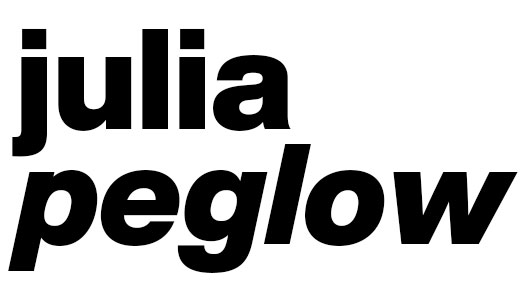Ed Catmull’s »Creativity, Inc.« – Overcoming the unseen forces that stand in the way of true inspiration
Auch im Management tut sich was, und das Buch Creativity, Inc. ist ein Hinweis in die richtige Richtung.
Was das Leben und Denken in unserem Zeitalter ausmacht: wir beobachten so langsam alle Strukturen, Unternehmen und Geschäftsmodelle, mit denen wir groß geworden sind, dabei, wie sie sich in Luft auflösen: Die Banken. Die Verlage. Das Fernsehen. Die Fifa. Denn statische Strukturen, im Inneren durch Macht, Hierarchie und Angst aufrecht erhalten, sind nicht mehr in der Lage, sich kreativ weiterzuentwickeln. Wie also müssen Unternehmen heute aufgebaut sein und funktionieren, um Veränderung, Kreativität und eigenständiges Denken nicht nur zuzulassen, sondern zu unterstützen und sogar herauszufordern?
Pixar Animations hat den Animationsfilm erfunden, durch eine noch nie dagewesene Verbindung von Technologie, Kunst und Story. Und das Team bei Pixar hat es geschafft, sich nicht auf seinen Anfangserfolgen auszuruhen. Sondern Arbeitsweisen zu entwickeln, die Kreativität im Unternehmen auf einem konstant hohen Niveau ermöglichen. Und darauf das gesamte Unternehmen und all sein Streben auszurichten! Extrem komplexe Projekte mit mehreren Hundert Team-Mitgliedern zu steuern, die in der Lage sind, eigenständig Probleme zu lösen. Eine Feedback-Kultur aufzubauen, in der man nicht nur Feedback-Theater spielt, sondern in der sich das Team einzig und allein der Qualität des Projekts committet und offen, ehrlich und konstruktiv Kritik äußern kann.
Ed Catmull (President of Pixar Animations and Disney Animations) beschreibt sehr ehrlich und weise, was man als Kreativer, Designer und Manager normalerweise in landläufigen Business- und Management-Ratgebern einfach nie findet: einen neuen, kreativen Ansatz, der ohne Hierarchien, Angst und ergebnisorientiertes Denken auskommt. Nebenbei erfährt man viel über die sich in den 1970er und 80er Jahren neu formierende Computer-Branche, Pixars Anfangsschwierigkeiten, den Einstieg von und die langjährige Freundschaft mit Steve Jobs. Auch geht es um den Hang von Unternehmen, erprobte Erfolgsmodelle in Standard-Prozesse zu überführen, die wiederum das Unternehmen konservativ und statisch machen; wie also das »Neue« gehegt, gepflegt und beschützt werden muss. Welche Rolle der Zufall dabei spielt, dem er immer einen Raum im kreativen Prozess einräumt. Und die Anerkennung, dass kreative, also auch Business-Prozesse während des Machens »unterwegs« entstehen, und nur bedingt strategisch und betriebswirtschaftlich geplant werden können.
Inspirierende Auszüge und Zitate aus dem Buch
»I believe that managers must loosen the controls, not tighten them. They must accept risk; they must trust the people they work with and strive to clear the path for them; and always, they must pay attention to and engage with anything that creates fear.«
»The leaders of my department (at the University of Utah – editor’s note) understood that to create a fertile laboratory, they had to assemble different kinds of thinkers and then encourage their autonomy. They had to offer feedback when needed but also had to be willing to stand back and give us room.«
»This was my first encounter with a phenomenon I would notice again and again, throughout my career: For all the care you put into artistry, visual polish frequently doesn’t matter if you are getting the story right.«
»We were blessed with a remarkable group of employees who valued change, risk, and the unknown and who wanted to rethink how we create.«
»Ideas come from people. Therefore, people are more important than ideas. Why are we confused about this? Because too many of us think of ideas as being singular, as if they float in the ether, fully formed and independent of the people who wrestle with them. Ideas, though, are not singular. They are forged through tens of thousands of decisions (…). To reiterate, it is the focus on people – their work habits, their talents, their values – that is absolutely central to any creative venture.«
»Getting the right people and the right chemistry is more important than getting the idea right.« »Find, develop, and support good people, and they in turn will find, develop, and own good ideas.«
»Our job is to protect the new.«
»Making the process better, easier, and cheaper is an important aspiration, something we continually work on – but it is not the goal. Making something great is the goal.«
»Here’s what we all know, deep down, even though we might wish it weren’t true: Change is going to happen, whether we like it or not. Some people see random, unforeseen events as something to fear. I am not one of those people. To my mind, randomness is not just inevitable, it is part of the beauty of live. Acknowledging it and appreciating it helps us respond constructively when we are surprised. Fear makes people reach for certainty and stability, neither of which guarantee the safety they imply. I take a different approach. Rather than fear randomness, I believe we can make choices to see it for what it is and to let it work for us. The unpredictable is the ground on which creativity occurs.«
»My rule of thumb is that any time we impose limits or procedures, we should ask how they will aid in enabling people to respond creatively. If the answer is that they won’t, then the proposals are ill suited to the task at hand.«
»At challenges technology, technology inspires art.«
»Measure what you can, evaluate what you measure, and appreciate that you cannot measure the vast majority of what you do.«
»I’m particularly struck by Byron Howard’s (a director at Disney) focus on speed – on zipping through complex problems of logic and storytelling – because it reminds me of what Andrew Stanton (a Pixar director) says about being a director. I’ve told you about Andrew’s belief that we will all be happier and more productive if we hurry up and fail. For him, moving quickly is a plus because it prevents him from getting stuck worrying about whether his chosen course of action is the wrong one. Instead, he favors being decisive, then forgiving yourself if your initial decision proves misguided.«
»It’s a huge lesson: Include people in your problems, not just your solution.«
»If you’re sailing across the ocean and your goal is to avoid weather and waves, then why the hell are you sailing?«
»I’m a firm believer in the chaotic nature of the creative process needing to be chaotic. If we put too much structure on it, we will kill it.«
»Things change, contantly, as they should. And with change comes the need for adaption, for fresh thinking, and, sometimes, for even a total reboot – of your project, your department, your divisions, or your company as a whole.«
»To keep a creative culture vibrant, we must not be afraid of constant uncertainty. We must accept it, just as we accept the weather. Uncertainty and change are life’s constants. And that’s the fun part.«








